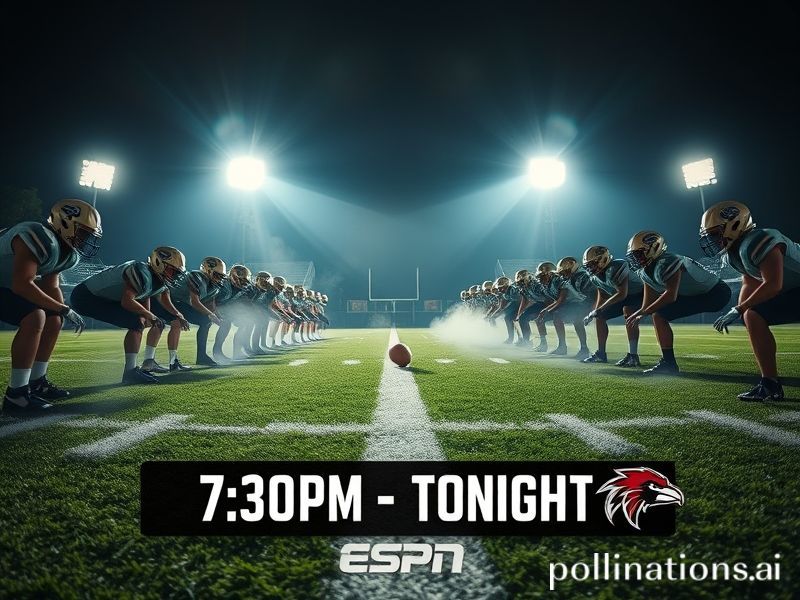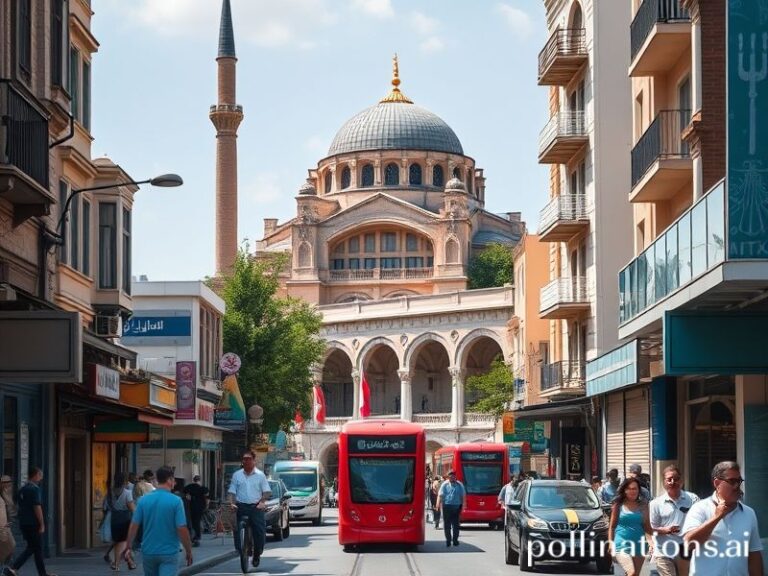Global Gladiators: Who Plays Football Tonight While the World Burns
Tonight, the planet’s most overpaid mimes and ambulatory insurance liabilities will take the stage in three time zones, each match sold as a morality play with corporate logos. In Madrid, Real Madrid hosts Manchester City for the second leg of their Champions League quarter-final, a fixture UEFA markets as “El Clásico Lite” for viewers who prefer their tribalism with subtitles. Kick-off is 21:00 local—perfect for insomniacs in Jakarta, breakfast crowds in Buenos Aires, and day-traders in New York who treat the scoreline like a crypto candle.
Meanwhile, over in São Paulo, Palmeiras and Boca Juniors open their Copa Libertadores group-stage tango at 19:00 BRT. Conmebol bills it as “the Derby of the Americas,” a phrase that conveniently glosses over the tear-gas habit of their combined ultras. In Kyiv, an empty-stadium charity match—Ukraine All-Stars vs. “Friends of Football”—kicks off at 18:00 EEST, timed so European newsrooms can splice footage of incoming drones between throw-ins. If you squint, it’s all one global telethon: the same ball, the same VAR heartbreak, the same geopolitical product placement.
The Madrid–City tie is, of course, the marquee distraction. On paper it’s a battle of ideologies: the club that still owes money to the Spanish state versus the club that is the Emirati state. In practice it’s a contest to see which sheikhdom can find the loophole that lets them register a 17-year-old Brazilian nobody’s heard of for €120 million plus TikTok royalties. The smart money says City win on aggregate, because Guardiola’s 4-3-3 has been mathematically proven to bore the universe into submission, and because Madrid’s Jude Bellingham picked up a “mystery knock” after smiling too hard at a sponsor event.
Down in São Paulo, Palmeiras arrive boosted by the knowledge that Boca’s traveling fans have been banned since the last Libertadores final, when the away section redecorated the Morumbi with flares and existential dread. Without an enemy to punch, Boca’s players have resorted to punching one another, which at least keeps the physiotherapists employed in an inflation-ravaged economy. Expect a 1-1 draw decided by a VAR review so microscopic it will require a papal encyclical.
Kyiv’s ghost game, meanwhile, is the night’s most honest spectacle: no ticket revenue, no betting markets, just football as a form of emotional triage. The Ukrainian FA has promised the match will be “100 % carbon neutral,” which is easy when half the stadium lacks electricity. Rumor has it the referee is a volunteer from Norway who took the gig to escape his own country’s sovereign-wealth-fund boredom; he’ll officiate wearing a flak jacket sponsored by a Scandinavian streaming service. Final score: hope 1, cynicism 1, extra time TBD by whatever artillery decides to chime in.
All three matches stream live on platforms whose user agreements require you to waive the right to complain about buffering or war crimes. Viewing parties will sprout from Lagos living rooms to Tokyo izakayas, each crowd convinced their particular feed is the most “authentic.” In truth, authenticity died the moment Amazon Prime bought the rights to show slow-motion replays of human pain.
So who plays football tonight? Everyone and no one. Eleven men in kits, billions more in debt—emotional, financial, or literal. The ball keeps rolling because stopping would force us to look at the scoreboard of the actual world. And that, dear reader, is a fixture nobody has the stomach to stream.







